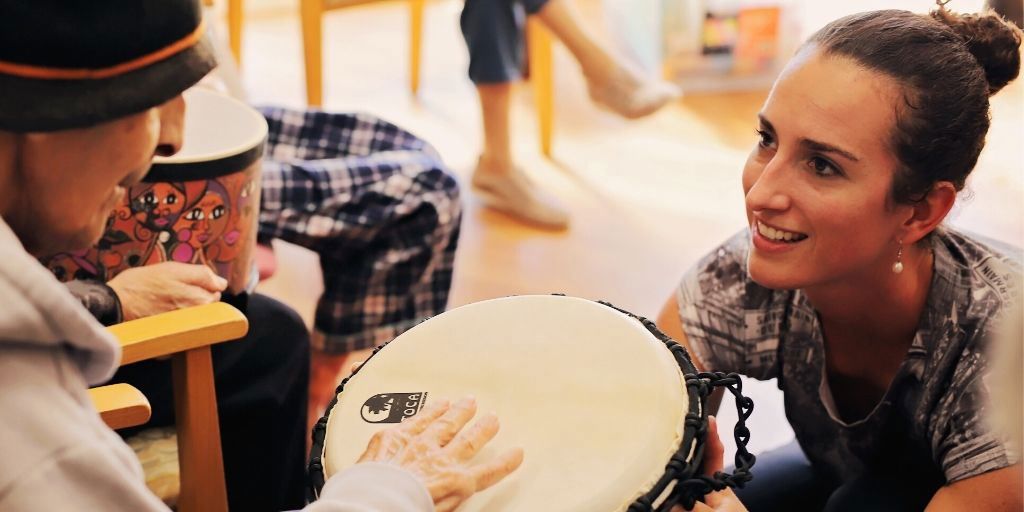
In the aged care industry there are plenty of moving parts.
From admin and research staff working behind-the-scenes, to those at the forefront providing direct care, thousands of people do their part in promoting a better quality of life for seniors and those living with a disability.
The industry’s approach to health care is holistic, with a multi-disciplinary team that includes support workers, medical staff, therapy assistants and a wide range of allied health professionals, who play a key role in helping clients maintain and improve their wellbeing.
Allied health is an umbrella term for a range of health professionals (not including doctors, dentists or nurses). Allied health professionals are university-qualified health practitioners that provide specialist support for physical, sensory, cognitive, psychological or social needs.
While there are over 20 different allied health professions, the below are particularly instrumental in aged care.
Occupational Therapy
Occupational therapists assess the functional health and wellbeing of their clients. They enable people of all ages to remain involved in day-to-day activities, like getting ready, preparing food, living and working in a safe environment, and connecting with the community.
Occupational therapists help seniors and those living with a disability set up and acquire assistive equipment, helping them optimise their function and increase their independence.
An occupational therapist may also assess the home environment to determine whether modifications like wider doorways, grips or handles could help improve safety and independence around the house.
Occupational therapists support people to reach their potential by teaching them strategies for everyday tasks like grooming, shopping or cooking.
Physiotherapy
Physiotherapists specialise in human movement. They understand the structure of the body and are trained to manage symptoms associated with injuries and health conditions, such as dementia, arthritis, brain injury and stroke.
In aged care and disability support, physiotherapists work with people to develop, maintain and restore maximum movement and functional ability. They determine what their capabilities are and help optimise their mobility and physical comfort. Physiotherapists may analyse gait, strength, movement and balance, and play a key role in advising on falls.
Physiotherapists may also visit a client’s home to run through strategies and exercises that address mobility issues and promote independence, helping them stay at home for longer.
Social Work
Social workers help people look at ways they can improve their personal wellbeing. Using their knowledge of family, social networks, disability and mental health, social workers help connect people with the support they need to address issues in their lives.
In aged care and disability support, social workers assist clients with advocacy, decision-making and financial or legal matters. They help clients navigate systems like the NDIS or MyAgedCare, and also provide referrals for community-based services.
Social workers play a fundamental role in providing emotional support around grief and relationships. For those with an acquired disability, social workers help them as well as their families adjust to new circumstances and maintain relationships.

Psychology
Psychologists specialise in human behaviour. Using their knowledge of the brain, they help people understand and address their thoughts, feelings, behaviours and reactions.
In aged care and disability support, psychologists assess cognitive difficulties and offer interventions to improve outcomes. This might include strategies to enhance memory, attention or behaviour. They also assess mood related conditions such as depression or anxiety.
Psychologists are crucial in providing support for people who have suffered an acquired brain injury, helping them and their family understand mood and behaviour changes.
Dietetics
Dietitians specialise in nutrition. Using their understanding of the science behind food, they help people address weight concerns and health conditions.
In aged care and disability support, dietitians provide advice to manage a healthy weight and prevent malnutrition, manage diabetes, and meet recommended dietary requirements. They offer practical guidance in choosing healthy foods, controlling portions and reading food labels.
They also work alongside speech pathologists to assist people with swallowing difficulties and provide consultation to catering and support teams to ensure nutritional requirements are met.
Speech Pathology
Speech pathologists treat communication and swallowing difficulties.
Due to developmental delays, disability, dementia, brain injury, stroke or hearing loss, speech pathologists help address a range of issues including speaking, socialising, eating, reading and writing.
Dysphagia is a swallowing disorder often associated with neurological disabilities and the later stages of dementia. Speech pathologists are instrumental in recognising and managing swallowing difficulties, providing guidance for prompting, feeding assistance and positioning, meal preparation, and diet modification, often alongside a dietitian.
Speech pathologists help clients establish beneficial and functional means of verbal or non-verbal communication. They also help promote opportunities for social engagement to reduce social isolation and loss of language.
Other allied health professions
Some other forms of allied health that can be found or referred to in aged care and disability support include:
- Podiatry – treats uncomfortable foot conditions that affect mobility
- Orthotics and prosthetics – helps people improve their mobility using splints, braces or artificial limbs
- Music therapy – uses music to improve wellbeing
- Arts therapy – uses visual arts, drama and dance to improve wellbeing
- Osteopathy – clinically treats strains and injuries that impact daily living
- Chiropractic – treats back pain and musculoskeletal disorders
- Audiology – treats hearing loss and balance disorders
- Optometry and orthoptics – specialises in sight and eye conditions



